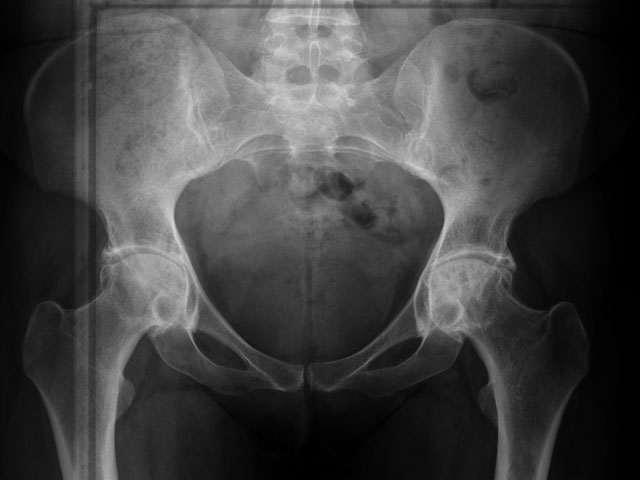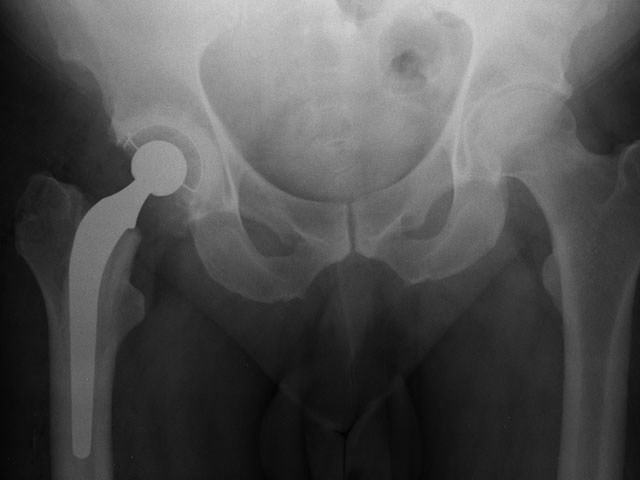Hip Replacement
A hip replacement involves removing the worn joint surfaces from the hip joint. Metal and plastic/ceramic components are fixed into the bone to fill the gap. The operation is done through an incision over the side of the hip, and the length of the incision depends on your body habitus.
The operation is performed under a general anaesthetic or a spinal anaesthetic. Supplementary local anaesthetic blocks to the tissues surrounding the hip are also provided to provide post-operative pain relief.
Some people wish to be asleep during the operation, others prefer to be awake. The anaesthetist will consider your preference and advise which anaesthetic is most appropriate taking into consideration your general health and own preferences. The operation takes approximately 80 minutes.
Before and After
You will normally be in hospital approximately five days after a hip replacement. It is normal for the hip to be painful post-operatively but the pain improves on a daily basis. Strong analgesics are prescribed after the operation. The local anaesthetic injections into the hip joint during the operation often provide good pain relief for up to 24 hours post-operatively.
Many patients are aware that the severe unremitting arthritis pain experienced pre-operatively has gone within a small number of days after the operation.
The majority of the operation pain should have settled within 4 weeks of the operation.
Generally speaking you will need 2-3 months off sick from work following the operation to allow you to recuperate.

